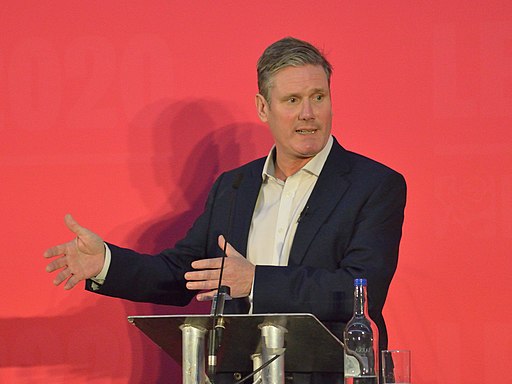The Elections in the North of England: Where Now for Labour?

CDE member Ryan Swift reflects on the implications for Labour following the recent election results in the north of England. He warns that the national level Labour leadership would be wise to embrace the party's local and regional leaders more; but also to re-focus its national strategy towards a clear policy agenda focused on the economic renewal of the types of places that have increasingly moved towards the Conservatives.
Following the Conservative Party’s triumph in the Hartlepool by-election, over the weekend we have seen the Conservatives make further inroads in the so-called Red Wall winning a significant number of seats on long-held Labour councils. The Labour Party too, however, has also enjoyed some success in council and mayoral elections across the region.
While caution is required in drawing out broader trends from local elections where turnout tends to be lower than at a general election and local issues play an important role, the results can be viewed in the wider context of the evolving politics of the North.
Conservative Success
In Durham Conservative gains have resulted in Labour losing overall control of the council for the first time in almost a century. In Rotherham, the Conservatives went from having 0 councillors to now having 20. The Conservatives have also gained a notable number of new councillors in places like Sunderland, Wakefield, and Hyndburn.
These Conservative gains on councils across the North map broadly on to places where we have witnessed a political shift from Labour to the Conservatives in recent years as part of an ongoing communitarian-cosmopolitan political realignment and along Brexit-driven dividing lines.
The results also likely owe something to the approach of the Conservative Party and their appeal in these types of places. Typifying this, the hugely popular Conservative metro mayor of Tees Valley, Ben Houchen, who embodies a new northern Conservativism, was returned to office winning an extremely impressive 73% of the vote.
Northern Labour
The election results across the North were not all doom and gloom for Labour, however. Despite losses, the party has managed to retain control of many councils across the region. Positive performances in places like Salford and Preston where the party locally has offered distinctive and popular policies have been widely lauded.
Impressive victories for Labour candidates in all of the North’s metro mayoralties up for election, aside from Tees Valley, is also of great significance. From Liverpool City Region to Greater Manchester, Sheffield City Region and West Yorkshire up to North of Tyne, there is a Labour metro mayor.
Learning from and building on these positive visions put forward by local Labour councils and mayors will be essential for the party if it hopes to reconnect with other areas in the North. The Labour Party needs to show that it can deliver positive change when in office and use all of the powers and resources at its disposal in these places to advance a cohesive and coherent vision of a Labour ‘levelling up’ agenda.
This might be a distinct brand of northern Labour that competes with the Conservative vision in the North directly on issues such as public ownership of transport, job creation, and investment in infrastructure and skills.
The Labour leadership at the national level would be wise to embrace the party’s local and regional leaders more. Speaking after his victory, Manchester metro mayor, Andy Burnham, said that the party needs to break out of its ‘London-centric’ approach. Changing the party’s structures to better recognise the role of local and regional voices in England would be a welcome first step for Labour. Additionally, the party should set out a coherent vision for the future of English devolution.
Rebuilding the Red Wall
While properly engaging with the party’s local and regional leaders will be an important first step for the Labour leadership if it wishes to take the fight to the Conservative Party in setting out its own bold vision for levelling up the North it will not, however, be a panacea.
Much will also depend on the party’s wider approach nationally. The recent appointment of Deborah Mattinson, former pollster for Gordon Brown and author of the book Beyond the Red Wall, as head of strategy suggests that Keir Starmer remains focussed on trying to win back lost seats in the North.
In this pursuit, it will be important to observe whether the party’s strategy moves away from merely attempting to compete with the Conservative’s on issues of competence, law and order, and patriotism, and instead shifts towards the development and promotion of a clear policy agenda focused on the economic renewal of the types of places that have increasingly moved towards the Conservatives. This agenda must also appeal to the party’s core vote in cities and Labour targets in the so-called ‘blue wall’ seats in the south of England. This will not be an easy task.
A further problem for Labour is that the party’s woes in parts of the North owe just as much, if not more, to the Conservative Party’s own successful strategy rather than Labour’s own shortcomings. This means that regardless of the steps that Labour takes over the coming months and years, the way in which the Conservative’s approach to the North develops and the extent to which it is seen to have delivered for its new voters across the region is likely to be just as important in shaping the future politics of the North of England as anything that the Labour Party does.
Ryan Swift tweets at: @RyanSwift93
Photo Credit: "File:Keir Starmer, 2020 Labour Party leadership election hustings, Bristol 4.jpg" by Rwendland is licensed under CC BY-SA 4.0
